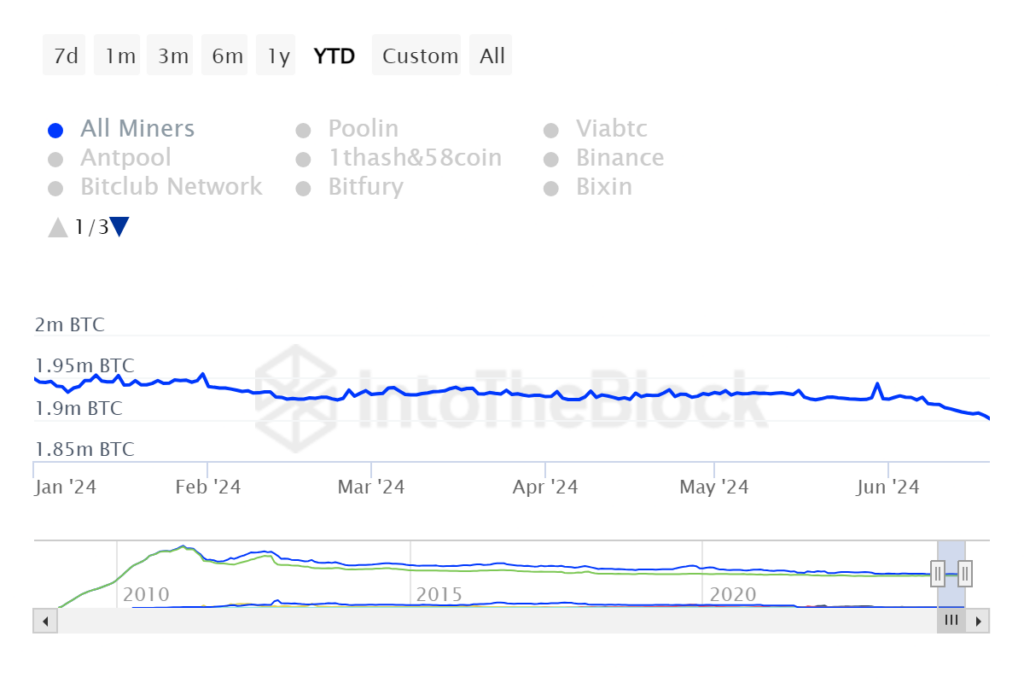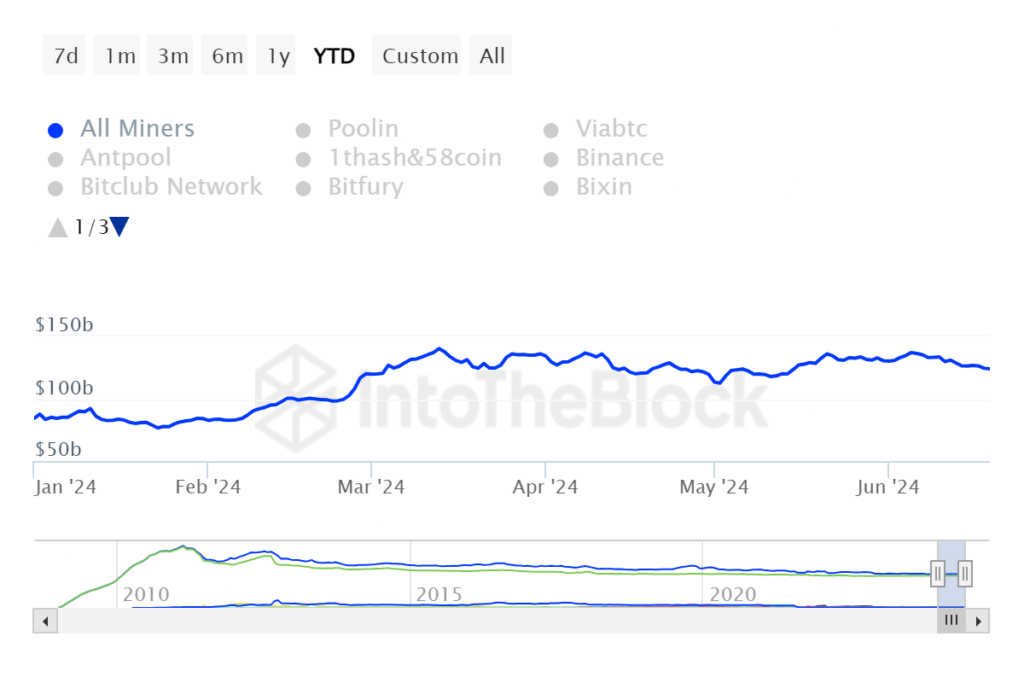Bitcoin Miners have held the least Bitcoin on their balance sheets since February 2010, but the fiat value of their reserves is hovering around an all-time high.
According to data from IntoTheBlock, the quantity of Bitcoin held by miners has reached its lowest level in over 14 years.
Miners’ reserves decreased to 1.90 million Bitcoin on June 19, following a peak of 1.95 million BTC at the beginning of the year.

Lucas Outumuro, the director of research at IntoTheBlock, anticipates that miners will maintain a reduced amount of Bitcoin in the future due to the halving of their margins, increasing their likelihood of selling their reserves.
Miners are compensated with new Bitcoin in exchange for validating transactions and safeguarding the network in Bitcoin’s proof-of-work consensus mechanism. The unsold virgin Bitcoin miners retain are called “miner reserves.”
The mining subsidy of the network is reduced by half approximately every four years.
The mining rewards were reduced from 6.25 BTC to 3.125 BTC due to the most recent quadrennial halving, which took place on April 20, 2024.
Outumuro told Cointelegraph, “Historically, this has occurred relatively slowly, so it has not been a significant selling pressure.”

In a written commentary shared with Cointelegraph, Sascha Grumbach, CEO of tokenized mining firm Green Mining DAO, stated, “It appears that today’s miners have incorporated the lessons of previous cycles.”
“Gone are the days of overleveraging and holding onto too much Bitcoin, a strategy that backfired in the past.”
Coinshares’ April report anticipated that Bitcoin’s hash rate would increase in 2025 following a decline following the halving.
Reducing Bitcoin rewards and competition decreases the quantity of Bitcoin produced per unit of hash power over time, increasing production costs.
“[Miners’] focus seems to be on short-term financial stability rather than long-term, large-scale accumulation of Bitcoin.”
Grumbach concluded, “It is customary to have a lower Bitcoin balance during the current market phase.”



